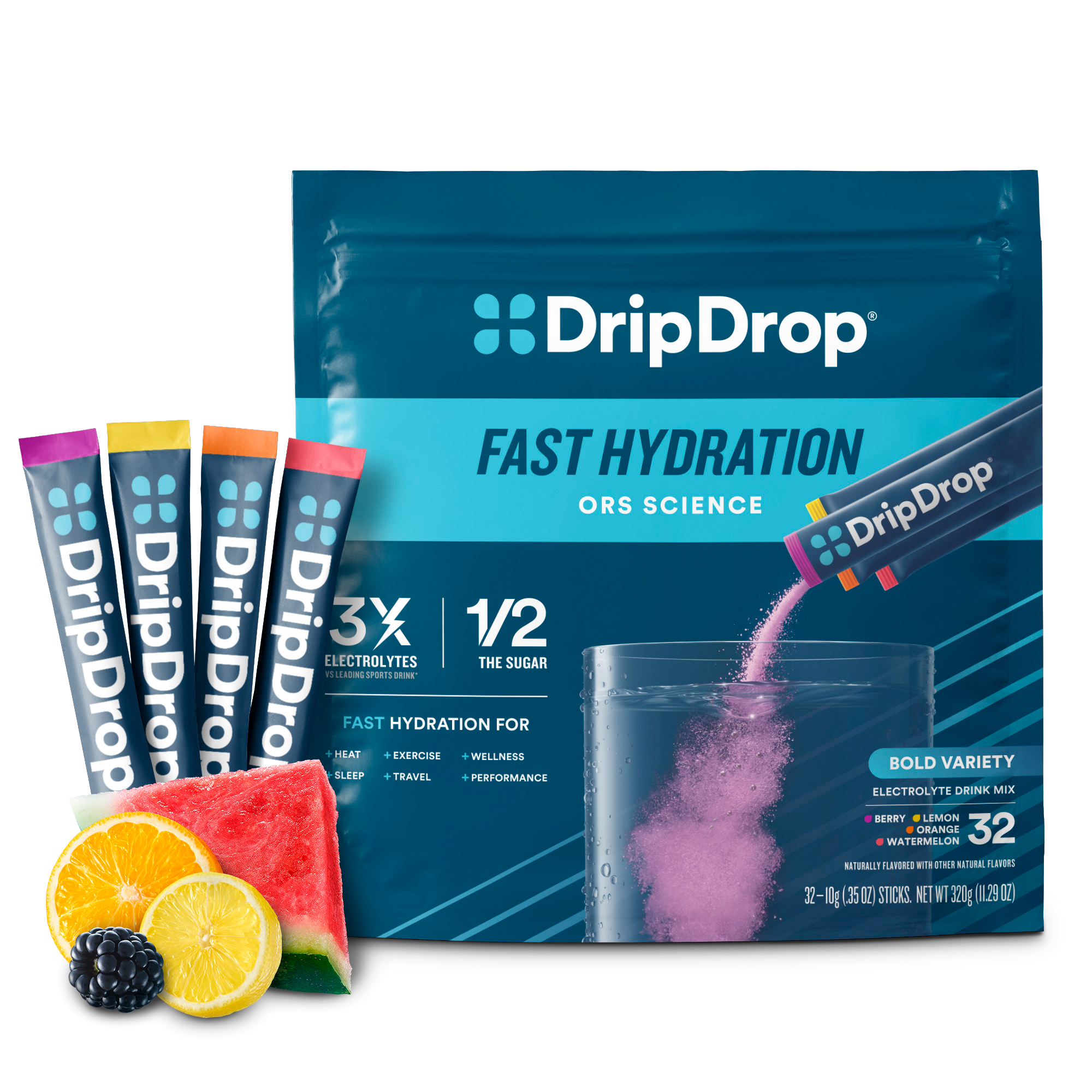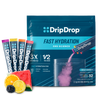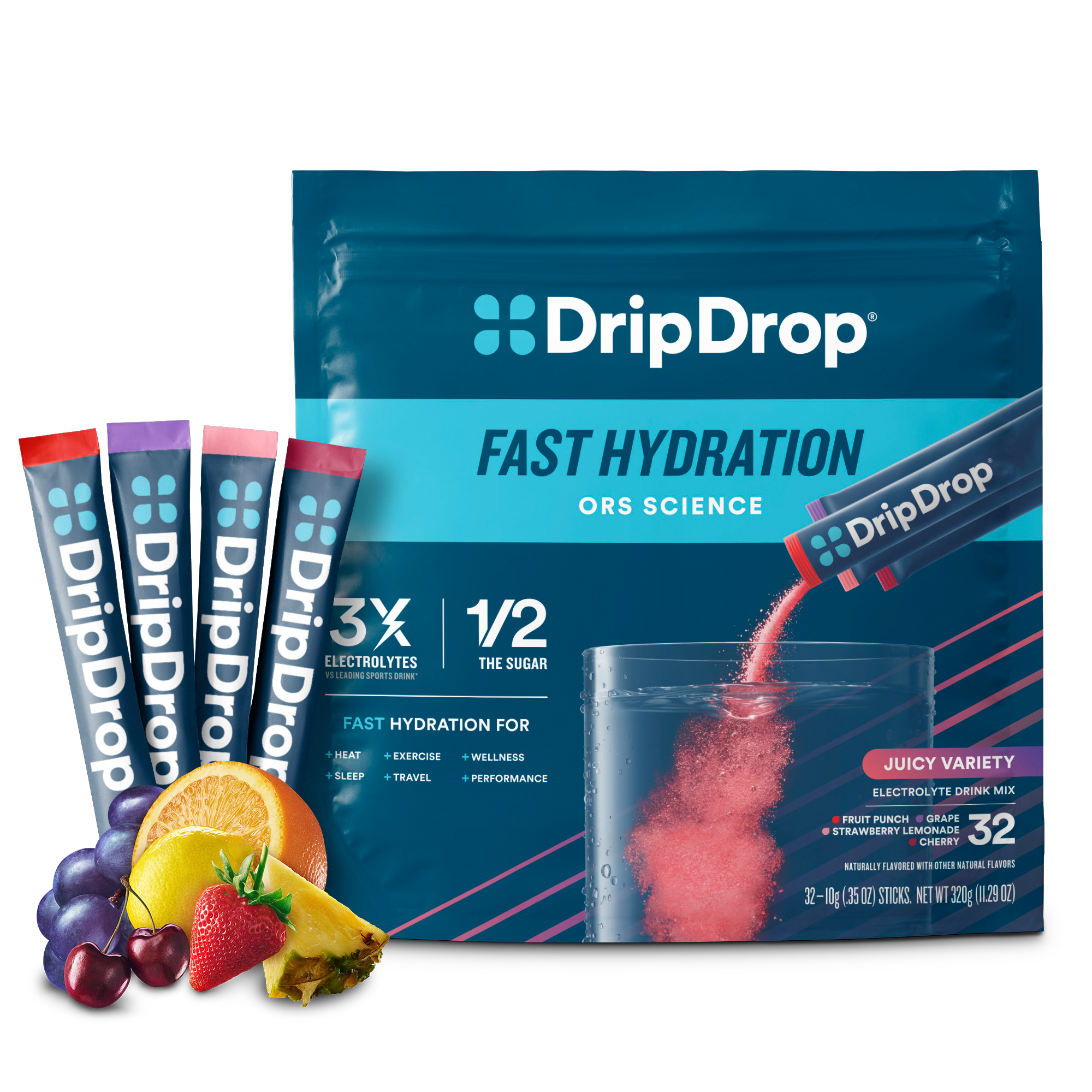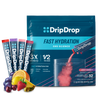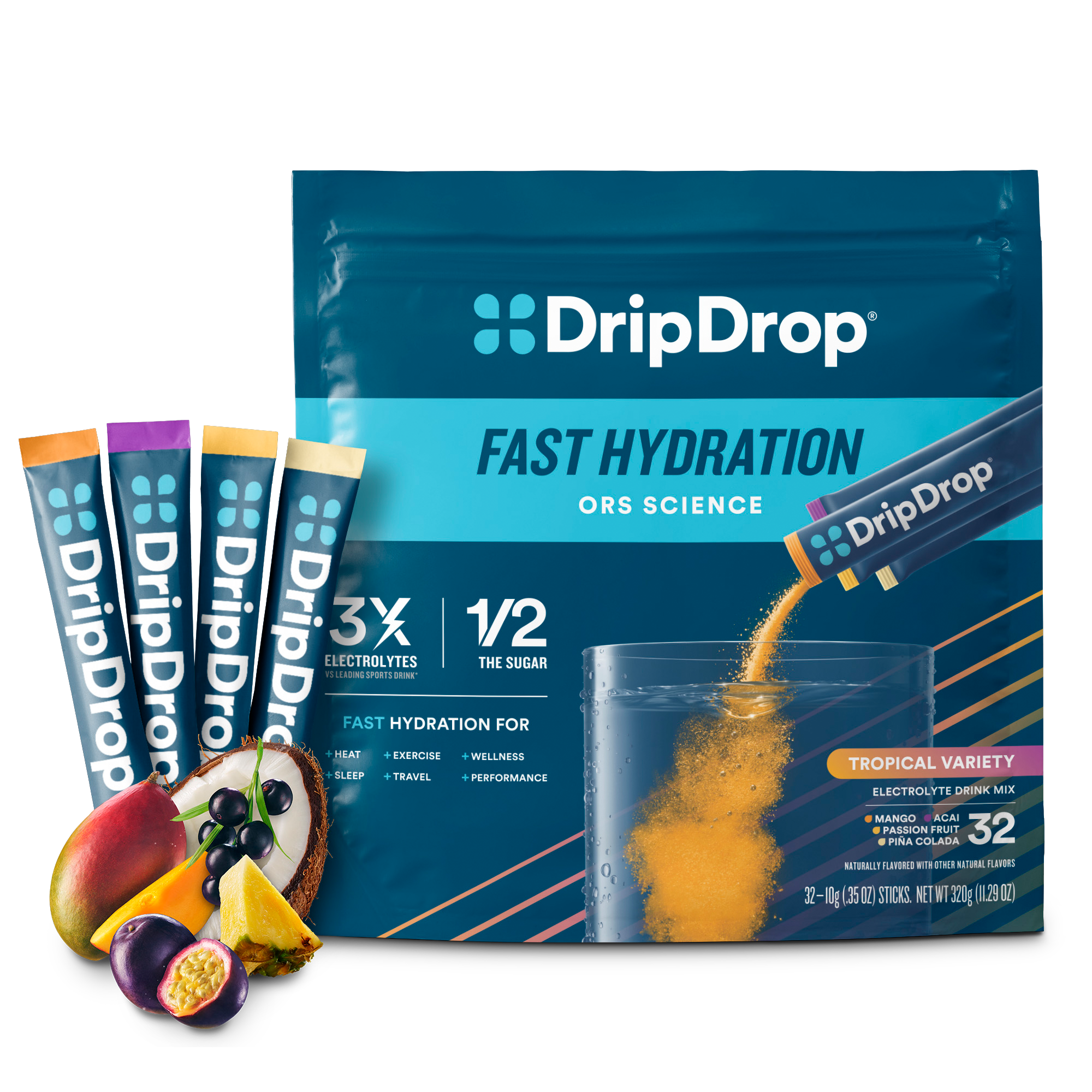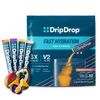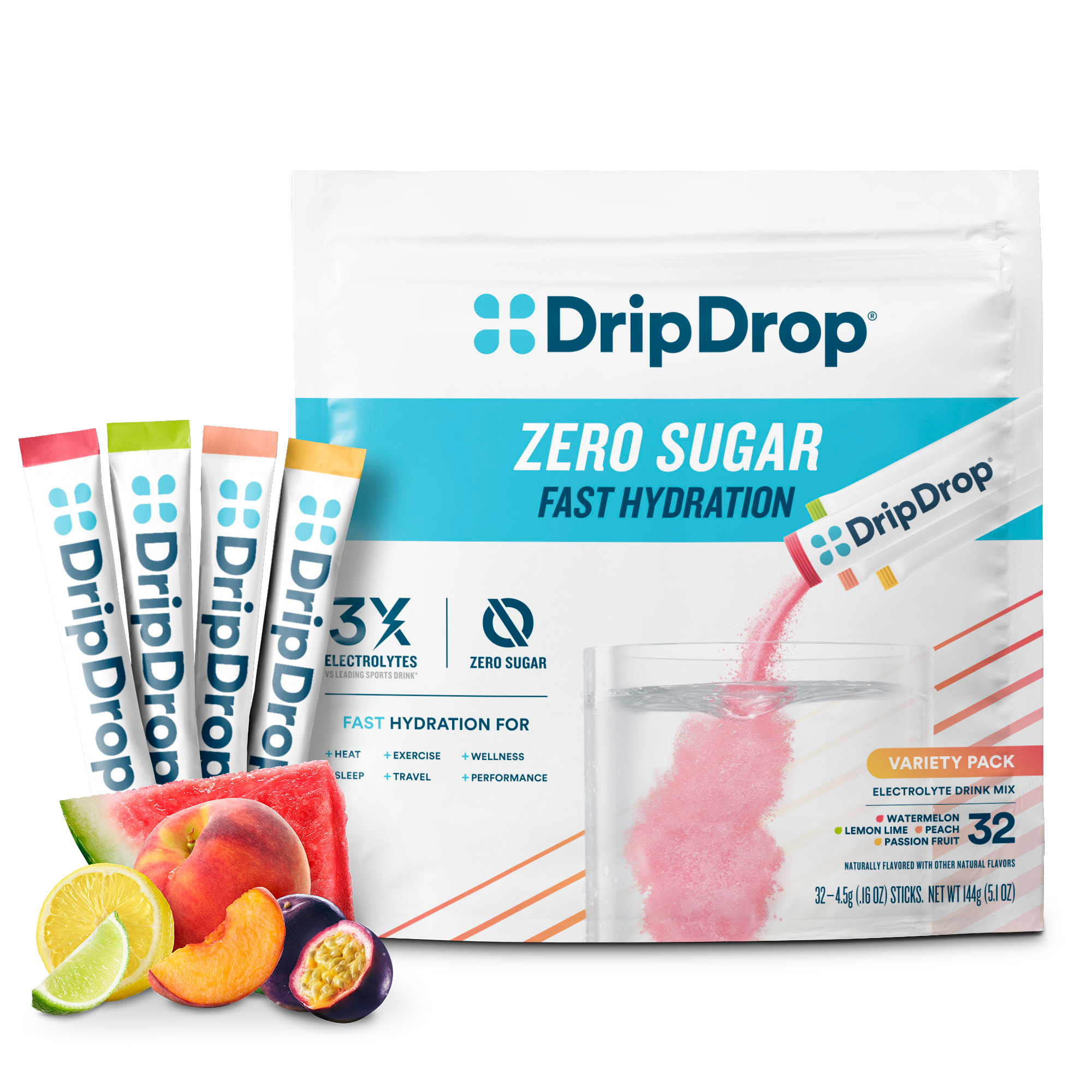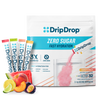You’ve probably heard about electrolytes but may not understand what they do or just how essential they are for the body. Electrolytes are charged vitamins and minerals that are present in body fluids including blood, sweat, and urine. These compounds play a key role in essential processes like controlling muscle function, regulating fluid balance, and transmitting signals across nerve pathways.
While these compounds are particularly important for people who perform intense physical activities, they are essential to overall health for all of us. When your body doesn’t get enough electrolytes, you may suffer from things like poor performance and medical conditions like dehydration. Here, you’ll learn why electrolytes are important, what causes electrolyte imbalances, and how to get electrolytes. These tips will help you remedy dehydration and protect yourself - even in extreme conditions.
Why Are Electrolytes Important?
There are several different types of electrolytes including sodium, potassium, calcium, bicarbonate, magnesium, phosphate, and chloride. The human body needs a proper ratio of electrolytes to function. If this natural balance is disrupted, you can suffer from a variety of symptoms that affect nerve function, muscle function, and overall health. These symptoms range from dizziness and nausea to fainting and organ failure in severe cases.
You may experience changes in overall electrolyte levels or you may have changes in just one or two — low potassium levels or calcium levels for example. Even small changes in electrolyte levels can result in dramatic changes in your body’s ability to function properly.
Here are some of the main functions of electrolytes:
- Maintaining normal fluid balance in the bloodstream
- Transmitting signals from nerve endings in muscles, cells, and the heart to the nervous system
- Supporting a normal heart rhythm
- Regulating a normal, slightly alkaline blood pH level
- Forming new tissue
- Helping blood to clot
- Enabling muscle contractions
- Transporting waste and fluids in and out of cells
What Causes Electrolyte Imbalances?
Electrolyte imbalances are caused by a wide range of actors. When you don’t get enough water and electrolytes, you may develop a condition called dehydration. Dehydration can range from mild cases to severe cases, which may require hospitalization.
The signs of dehydration include lightheadedness, dry mouth, muscle cramping, extreme thirst, and headaches. Moderate and severe cases produce symptoms that include confusion, low blood pressure, irregular heartbeat, heart failure, and dark-colored urine.
If you suspect you have severe dehydration, head to the emergency room or contact your physician immediately.
Here are the main causes of electrolyte imbalances:
- Illness or sickness that causes diarrhea or vomiting
- Excessive sweating
- Alcohol consumption
- Intense exercise or working in extreme conditions
- Overheating and heat-related illnesses, including heat exhaustion and heat stroke
- Certain medications, including diuretics and laxatives
- Medical conditions such as diabetes, kidney disease, and cystic fibrosis
- Medical problems, including rhabdomyolysis, which causes muscle weakness and breakdown that can harm kidney function
- Not drinking enough fluids or getting proper nutrition
Treatment of Severe Dehydration
To treat severe dehydration, healthcare providers may give you intravenous fluids — an infusion of calcium chloride, serum magnesium, and serum potassium — which will be administered in the hospital via a central line.
Doctors also use IV lines for calcium replacement, magnesium replacement, and potassium replacement, depending on the electrolyte deficiency that caused your severe dehydration. Drinking an oral rehydration solution at the first sign of dehydration may help keep you out of the hospital.
You can treat mild to moderate cases of dehydration at home, and you can avoid dehydration by taking a few precautions and planning ahead.
The Best Way to Get Electrolytes
When it comes to nutrients and vitamins, many of us reach for foods, which are generally good sources of nutrition. Some foods, including whole grains and veggies like sweet potatoes, avocados, kale, and leafy greens, contain minor amounts of electrolytes. However, it’s difficult to get the amount of electrolytes your body needs to function properly from foods alone.
Electrolyte supplementation in the form of tablets, pills, and powders is also ineffective. Supplements aren’t regulated and may not contain the ingredients and electrolytes they list on the packaging.
What about sports drinks like Gatorade and Powerade, or health drinks like Pedialyte? While these drinks are widely recommended as electrolyte replacement drinks, they’re not as effective as oral rehydration solutions. They’re packed with added sugar and don’t contain the proper ratio of electrolytes. Many also contain excessive amounts of table salt, which can cause health problems.
When it comes to water, neither coconut water nor plain water contains enough electrolytes to restore a proper electrolyte balance. They may replenish water content in your body, but they won’t replenish electrolytes like magnesium, calcium, and sodium.
Additionally, the methods above aren't meticulously formulated with a proper amount of electrolytes. Instead, the best way to get electrolytes is by using an oral rehydration solutions (ORS).
How You Can Remedy Electrolyte Loss
You can avoid electrolyte loss simply by staying hydrated and planning ahead. When you’re sick or working hard — whether on the job site or at the gym — make sure to keep an ORS on hand.
If you have to work outside or in extreme conditions, try to take breaks often to avoid overheating. You can do this by drinking an oral rehydration solution and packing a cooling towel in your bag. Wear loose-fitting clothing that allows your body to cool off through sweat. Also, wear a hat and sunglasses to keep the heat of the sun off your head. If you find yourself overheating, place ice packs underneath your armpits or on the back of your neck to cool off.
Get Electrolytes with DripDrop and Save 25%
With 3 times the electrolytes and have the sugar of sports drinks, DripDrop is the idea way to replenish lost electrolytes. Just add one of the flavors to your water bottle or thermos and pack it in your gym bag or work bag.
Get started with our most popular multi-flavor pouch for dehydration relief fast. Or, learn more about how you can save up to 25% on every purchase when you subscribe.



